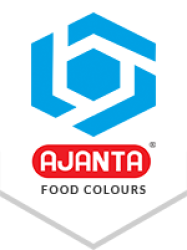The United Kingdom, often simply referred to as the UK, is a sovereign country located off the northwestern coast of mainland Europe. Consisting of four constituent nations: England, Scotland, Wales, and Northern Ireland, the UK is renowned for its rich history, diverse culture, and significant contributions to various fields, including manufacturing.
Manufacturing industries in the UK have a long and storied tradition, playing a crucial role in the country's economy for centuries. From the Industrial Revolution to the present day, the UK has been at the forefront of innovation and production across various sectors.
Manufacturing industries need many components to make a finished product and all the components are important. One of the most important components is colour. It helps a lot of manufacturers to sell their products by attracting customers, creating brand identity, and conveying quality. To fulfill the demand of colours in the country UK imports colour from other countries, including India, Germany, the United States, and Italy.
U.K Industries Where Colours Play a Vital Role
In the United Kingdom, different sectors use colours in their products to convey messages, evoke emotions, shape brand identity, and influence consumer behaviour. Let's explore key industries where colours play an important role in the UK.
Food and Beverage Industry
Choosing the right colour for food and beverage products is a crucial decision for UK manufacturers. Colour can affect the quality, stability, and appeal of the products, as well as consumer perception and preference. Synthetic colours offer many advantages over natural colours, such as consistent quality, longer shelf life, a wider range of hues, and lower cost. Synthetic colours can also help UK manufacturers boost their sales by creating attractive and distinctive products that stand out in the competitive market. In the United Kingdom, many suppliers purchase colourants in bulk quantities from other countries and sell them to different businesses. Some suppliers sell under the company’s brand name they bought them from, while others create their labels and sell the colourants under their brand name. Synthetic colours are widely used in the food and beverages industry of the UK, especially in major manufacturing hubs such as London, Birmingham, Manchester, and Glasgow. According to Statista, the revenue of the food market of the United Kingdom is anticipated to generate a revenue of US$178.60 billion in 2025. Projections suggest an annual growth rate of 5.42% (CAGR 2025-2030).
Cosmetics Industry
One of the challenges faced by UK cosmetics manufacturers is selecting the right colours for their products. Colours such as perfect shades, stability, etc, can affect the quality, appeal, and safety of cosmetics. Synthetic colours are the solution to this problem, as they offer many benefits over natural colours. Synthetic colours are more stable, consistent and versatile than natural colours. They can create a wide range of shades and effects that suit different skin tones, preferences and occasions. Synthetic colours also have a longer shelf life and are less likely to cause allergic reactions or irritations. By using synthetic colours, UK cosmetics manufacturers can boost their sales and brand reputation. They can offer more attractive, innovative and reliable products that meet the needs and expectations of their customers. They can also comply with the strict regulations and standards of the cosmetics industry in the UK and abroad. Most of the cosmetics manufacturing industries in the UK are located in London, Manchester, Birmingham, Leeds and Glasgow. According to Statista, the revenue in the Beauty & Personal Care market in the United Kingdom is projected to reach US$17.52 billion in 2025. It is expected to grow annually by 2.07% (CAGR 2025-2030).
Pharmaceutical Industry
In the United Kingdom, pharmaceutical manufacturers faces many challenges in choosing the right colours for its products. Colours are important for the identification, quality, stability and appeal of medicines. Synthetic colours provide a solution, as they offer consistent quality, stability and safety. Synthetic colours also help the manufacturers to stand out their products from the competition, enhance consumer perception and preference, and meet regulatory standards. They make the tablets. capsules, syrups, etc, visually appealing, which improves the patient's experience. This also helps the manufacturer establish their product as a trusted brand in the market. In the UK, many large distributors import colourants from other countries and then supply them to companies. Some distributors sell these colourants under the original brand name, while others create their own labels and sell them under their own branding. Some of the major pharmaceutical hubs in the UK are London, Cambridge, Oxford, Manchester and Edinburgh. According to Statista, the revenue of the only OTC Pharmaceuticals market in the UK amounts to US$4.19 billion in 2025 and it is expected to grow annually by 4.72% (CAGR 2025-2029). The UK pharmaceutical market is one of the top 10 global national markets, representing about 2.3 percent of the global pharmaceutical sector.
Chocolate Industry
One of the challenges faced by UK chocolate manufacturers is choosing the right colours for their products. Colours can affect the appeal, quality, and stability of chocolates, so finding the perfect shade is crucial. Synthetic colours offer a solution to this problem, as they have many benefits. Synthetic colours are more stable, consistent, and versatile, allowing chocolate manufacturers to create a variety of vibrant and attractive colours. They are also safe for consumption, as they are tested and approved by regulatory authorities. Synthetic colours do not pose any health risks to children or adults, and they can enhance the enjoyment of chocolates by creating a positive association with colours. By using synthetic colours, chocolate manufacturers can boost their sales and brand recognition, as they can differentiate their products from competitors and cater to different preferences and occasions. Colourant merchants in the United Kingdom source colourants from domestic or foreign suppliers at the best prices. They sell these colourants to various industries such as food and beverages, cosmetics, and pharma, at higher prices, making a profit on each sale. They may also offer discounts or incentives to attract more customers. By managing their inventory efficiently and providing quality customer service, colourant merchants can increase their sales and profitability. Ajanta Food Colours is a trusted manufacturer of food colourants that offers high-quality products at affordable prices. Many merchants and distributors choose Ajanta because they value its quality and affordability. Some of the places where chocolate manufacturing industries are located in the UK are Birmingham, York, Reading, and London. According to Statista, the revenue of the Chocolate Confectionery market in the United Kingdom amounts to US$9.12bn in 2025. The market is expected to grow annually by 3.53% (CAGR 2025-2030).
Animal Feed Industry
UK animal feed manufacturers face many challenges in choosing the right colours for their products. Colours can affect the quality, stability, and attractiveness of animal feed, as well as the health and behaviour of the animals. Synthetic colours are the solution to these problems. Synthetic colours are more stable, consistent, and versatile than natural colours. They can enhance the appearance and palatability of animal feed, making it more appealing to the animals and increasing their intake. Synthetic colours can also help animal feed manufacturers grow their sales and brand recognition. By using synthetic colours, they can differentiate their products from the competitors and create a loyal customer base. Synthetic colours are widely available, making them a smart choice for animal feed manufacturers who want to improve their products and profits. Moreover, synthetic colours can help buyers identify and differentiate between various types of animal feed, such as poultry, swine, or cattle. The animal feed industry is a major sector in the United Kingdom's economy, as it supports the production of meat, dairy, eggs, and other animal products. In the UK, the majority of animal manufacturing industries are situated in rural areas, particularly in regions with a strong agricultural presence such as East Anglia, Yorkshire, West Midlands, South West England, and Scotland and Wales. According to Statista, the revenue in the Animal Feed market of the United Kingdom amounted to US$7.66 billion in 2025. The market is expected to grow annually by 4.33% (CAGR 2025-2030).
Cultural Preferences of Colours in the UK
Colour is a powerful tool that can influence our emotions, behaviour, and perceptions. Different cultures may have different associations and meanings for colours, so it is important to understand the cultural preferences of colours in the UK when designing products for this market. Blue is the most popular colour across all countries, genders, ages, races, and even political affiliations. Blue is often associated with trust, reliability, calmness, and professionalism in the UK. Therefore, many UK manufacturers use blue as a dominant colour in their products, especially in sectors such as food and beverages, chocolates, and cosmetics. But blue is not the only colour that UK makers use smartly in their products. Other colours can have different impacts depending on the situation, the type of product, and the people who buy it. Makers watch these colour preferences carefully, using artificial colours to make attractive products that connect with customers on a deeper level, making their products more appealing.
Regulatory Guidelines on Colours in the UK Market
In the UK, there are strict regulatory guidelines concerning the use of colors in various products like food, beverages, pharmaceuticals, cosmetics, and more. These guidelines ensure that the colors used are safe for consumption and do not pose any health risks to consumers. The main governmental bodies responsible for overseeing these regulations are the Food Standards Agency (FSA) and the Medicines and Healthcare Products Regulatory Agency (MHRA). By enforcing these guidelines, these agencies help protect consumers from harmful substances and maintain product quality and safety standards. For manufacturers, adhering to these regulations is crucial as it ensures their products comply with the law, builds trust with consumers, and avoids potential legal issues or product recalls.
Ajanta Food Colours is a leading colourant manufacturing company with 75+ years of experience. It produces high-quality colours that are popular worldwide. Ajanta exports its colours to many European countries, such as Denmark, France, Germany, and more. It also supplies colours to the United Kingdom market.
Ajanta Colours has earned various certificates that attest to the quality and safety of its colours. It has an FDA certificate, an ISO 9001:2015 certificate for its quality management system, a HACCP certificate for its food safety system, a HALAL certificate for its compliance with Islamic dietary laws, a KOSHER certificate for its compliance with Jewish dietary laws, etc.
Startups in the United Kingdom face a lot of competition when they launch new products. They need to make their products different and attractive to the customers. Ajanta Food Colours helps US startups to create products that look appealing and unique. This increases their product visibility and sales.
Ajanta Food Colours is a great choice for United Kingdom businessmen who want a reliable colours exporter. The company offers many benefits, such as competitive prices and timely delivery, which save money and time. It also provides customized solutions and technical support, which improve the customer experience. Ajanta Food Colours has a wide range of colours and applications, which meet different needs in the market. The company's consistency and performance in its products add trust to its offerings. Ajanta Food Colours is a loyal partner for businesses looking for high-quality colour solutions in the United Kingdom market.
To know more about Ajanta Food Colours and its Supra range of colours, or for any other information, please contact us today!





